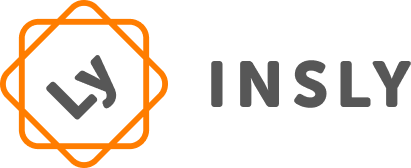Sabine VanderLinden is the global managing director of Startupbootcamp InsurTech, Europe’s leading early-stage and independent accelerator for insurance technology startups as well as Rainmaking’s corporate innovation business focused at driving growth in the insurance space.
1. Please name 3 most promising InsurTech startups, feel free to add your comments why.
I think that there are many promising startups out there, particularly with current progresses made with sensor-led technology, smart devices and artificial intelligence algorithms. Some of these ventures have already raised significant investments to support their growth. Many are working on very interesting projects. A few startups that come to mind include:
Boundlss, Healthcare Analytics and Health Engagement from Perth. Boundlss is a behavioral analytics platform that analyzes data from wearable devices / apps. The team has built a prediction and recommendation platform that draws on mobile data (location, movement, communication), social network data, and wearable self-tracking technologies, to provide powerful performance insights based on Artificial Intelligence. The analytics platform spots the key patterns of different teams and provides personalized recommendations through a robo-coach for living healthier lives and improve efficiency.
With 15 years of expertise designing and delivering machine learning models, Emerge, delivers advanced predictive algorithm supported by artificial intelligence techniques to help insurance companies grow their revenues from their insurance operations and enhance these companies’ relationships with their clients. Emerge does this through a SaaS solution and the delivery of bespoke machine-learning models across the customer value chain. The models are very accurate and quick to build. Emerge Analytics’ machine-learning algorithms identify, very quickly, patterns in data, any types of data. The solution does so with one of the highest level of accuracy. With one of their focus being, optimising the customer lifetime value strategies, they provide insurers with an accurate lists of clients needing more attention as well as recommendations to enhance the company relationship with each customers. Emerge is currently working with a group of international insurers as well as professional services experts such as Deloitte and PwC.
Delphisonic, Industrial IOT startups from Turkey. The venture solves the predictive maintenance problem, with a real-time, condition monitoring, industrial internet application. Delphisonic helps your business receive access to immediate and secure information regarding its devices, vehicles, wind turbines, and other machines. It’s software is based on IoT and Big Data Analytics. It helps enterprises save time and money by predicting failures and defects in their systems in advance and in real-time. Delphisonic can be applied to a variety of systems and machines such as railways, ships, wind turbines, industrial lines, and off-shore platforms. As insurers are looking for a variety of techniques to deliver preventative solutions in the commercial lines space.
Each startup has a direct impact on an insurance business line or across the insurance value chain. Boundlss graduated from our Singapore FinTech program. Emerge from our InsurTech London program. Delphisonic from our Berlin Transportation program.
2. What is the biggest obstacle for InsurTech startups to disrupt the market?
I think you have disruptive startups and innovative startups. One group will compete against (re)insurers and brokers to deliver very unique new platforms and digital propositions to the market (e.g. like often mentioned Oscar, ZhongAn, Lemonade). For those that aspire to be disruptive the biggest obstacle will be to develop a proposition which is so unique that it can scale in a short period of time. Such ventures raise significant sums of investment or gain support from capital providers, to enable them to stand on their own with little reliance on corporate partnerships. On the other hand, innovative startups must design and develop digitally-enabled solutions that attract corporates to work with them. The challenge in that later case is the speed with which the corporates respond to startups that are moving at fast pace. Often corporate entities must develop new innovation processes to benefit from the differentiation advantage brought about by the startup.
[bctt tweet=”Innovative startups must design and develop digitally-enabled solutions that attract corporates to work with them” username=”insly_com”]
3. Are you betting more on the innovation from insurance companies or from startups, why?
As we have discovered from a recent survey we ran with our global partners and alumni, corporate entities are not the most agile at innovation because of legacy, size, processes and culture. I would say that the startups are far more innovative than the corporate entities. Indeed, startups have for advantage to be nimbler, faster, more innovative as concerns product design and far more marketing savvy. They also foster and continuously develop amazing new world skill sets. And they can do so with very limited resources.
4. If you were to establish your own insurance startup what problem would you like to solve with that?
I would play to my strengths and find a way to create a startup that helps connect series of unique startup propositions together to solve some of the most complex problems that are out there. To deliver any of the digital challenges that consumers and businesses face many organisations know that they must deal with more than one startup at a time.
5. What is your biggest concern regarding insurance future?
I think you will see some insurers that embrace innovation and move super fast, followed by the fast followers and early majority groups. However, there will be many businesses that will not do anything at all because they believe that the current digital transformation will not affect them. Big mistake! Current digitisation is affecting everyone not only groups of businesses that are gradually becoming more competitive from a speed and cost view point, but also individuals who want experiences similar to those offered by the GAFA (Google, Apple, Facebook, Amazon).
[bctt tweet=”There will be many businesses that will not do anything at all because they believe that the current digital transformation will not affect them.” username=”insly_com”]
6. What will disrupt the insurance sector in 2017?
The IOT, smart devices, Intelligent machines and new customer experiences are coming together to better answer customers’ needs. Together they can deliver customer focused products and services and seamless interactions across the full insurance value chain. This is the reason why many investors are spending significant amount of monies to identify the winning solutions of tomorrow.
Sabine’s Profile:
Sabine VanderLinden is the global managing director of Startupbootcamp InsurTech, Europe’s leading early-stage and independent accelerator for insurance technology startups as well as Rainmaking’s corporate innovation business focused at driving growth in the insurance space. Sabine cultivates the expertise of leading insurers, investors and mentors to bring the innovation of a cohort of start-ups to market within a three month-period. She also works with insurers to help shape and deliver their corporate innovation agenda. She can be contacted at: sabine@startupbootcamp.org. Twitter: @SabineVdL
Read other posts from series “6 Questions with InsurTech Influencer“.



